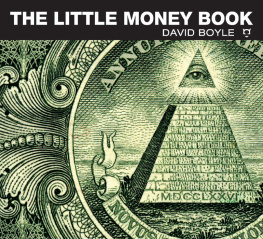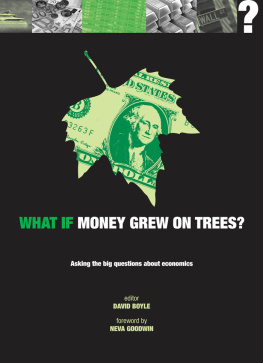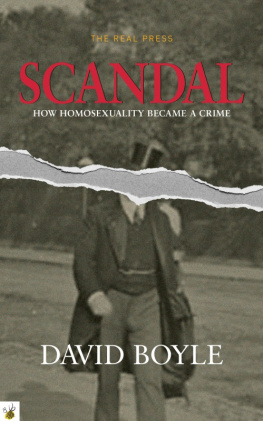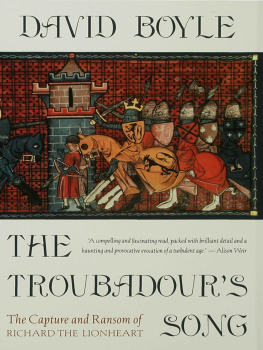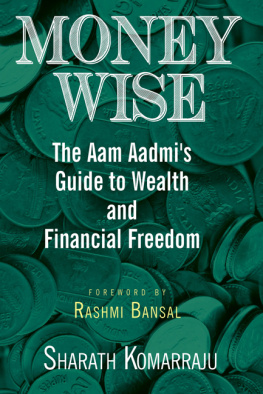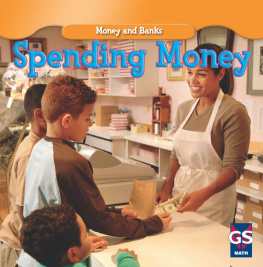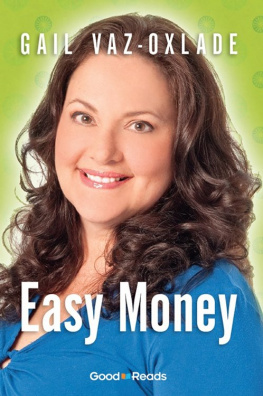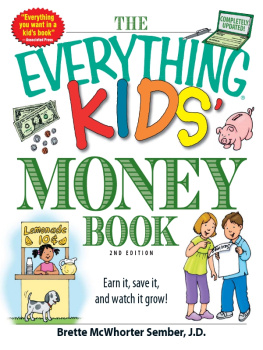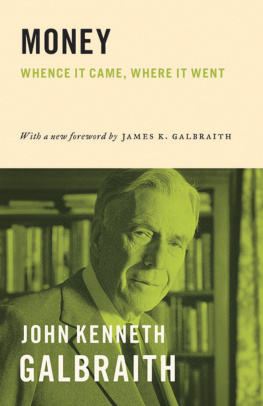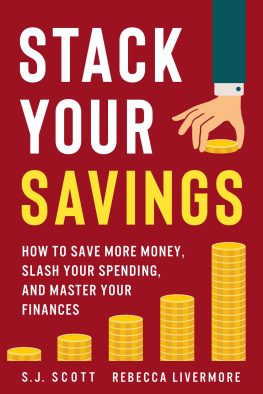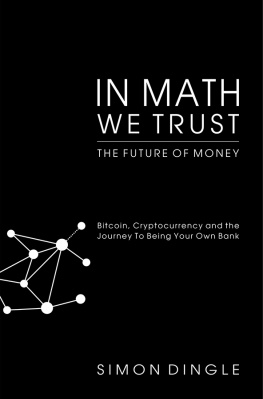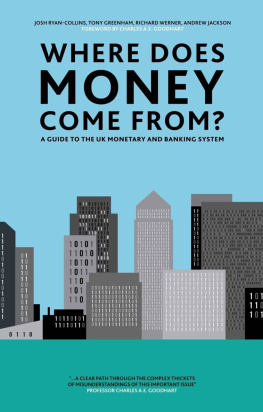Copyright October 2003
Alastair Sawday Publishing Co. Ltd.
Published by The Disinformation Company Ltd.
163 Third Avenue, Suite 108, New York, NY 10003
Tel: +1.212.691.1605 Fax: +1.212.691.1606
www.disinfo.com
Distributed by Consortium Book Sales and Distribution
1045 Westgate Drive, Suite 90, St. Paul, MN 55114
Toll Free: +1.800.283.3572 Local: 1.651.221.9035
Fax: +1.651.221.0124
www.cbsd.com
All rights reserved. No part of this publication may be reproduced, or transmitted, in any form or by any means, electronically or mechanically, including photocopying, recording or any information storage or retrieval system without prior written permission from the publisher.
ISBN-10: 1-932857-26-5 / ISBN-13: 978-1-932857-26-9
Library of Congress Control Number: 2005936938
The publishers have made every effort to ensure the accuracy of the information in the book at the time of going to press. However, they cannot accept any responsibility for any loss, injury or inconvenience resulting from the use of information contained in this guide.
Printed in the USA
Disinformation is a registered trademark of The Disinformation Company Ltd.
First published in Great Britain by Alastair Sawday Publishing Co. Ltd.
Editor: Alastair Sawday
Book design: Anne Marie Horne
Illustrations: Zedcor Inc.
Written and researched by David Boyle
First Disinformation edition:
Text design & layout: Patrick Neighly
Cover design: Jacob Rosette
Project editors: Jason Louv and Liz Lawler
Production editor: Maya Shmuter
Managing editor: Ralph Bernardo
www.redwheelweiser.com
www.redwheelweiser.com/newsletter
CONTENTS
WHY PUBLISH THIS BOOK?
Lurking within the gargantuan machine that is the financial system are some very bizarre, and even astonishing, truths.
We, the world's richest countries, demand billions of dollars annually as interest payments on loans made to previous rulers of poor countries. In many cases they were corrupt rulers put there and propped up by us.
The following fascinating (and lightly edited) speech to European heads of state by a representative of South American indigenous communities is worth every second of your reading time:
I, Guaicaipuro Cuatemoc, have come to meet with the participants of this meeting.
Here I, descendent of those who have lived in America for 40,000 years, have come to meet with those who met us 500 years ago.
My brother, the European usurer, asks me to repay a debt of treachery from a Judas I never authorized to put me up for collateral.
My brother, the European hypocrite, explains to me that all debts must be paid with interest even while he buys and sells human beings and entire countries without their consent.
I have been discovering these things. I too claim payment and I too claim interest.
Proven it is, in the archives of native peoples, by paper upon paper, receipt upon receipt, and signature upon signature, that between the years 1503 and 1660 there arrived at San Lucas de Barrameda 185,000 kilos of gold and I 6,000,000 kilos of silver from the Americas.
Those 185,000 kilos of gold and 16,000,000 kilos of silver should be seen as the first of many, many friendly loans from the Americas toward European development. The contrary would be to assume war crimes and not only immediate recompense, but indemnity for damages, pain and suffering.
Such a fabulous transfer of capital was no less than the beginning of a Marshall Tesuma plan, to guarantee the reconstruction of a barbaric Europe, ruined by wars against (a very civilized) Islam.
So. To celebrate the Fifth Centennial of the IOU, we can ask: Have our European brothers made rational, responsible or even productive use of these amounts so generously advanced by the International Indo-American Fund?
Sadly, the answer is no. In their campaigns they squandered it in the battles of Lepanto, in invincible armadas, in Third Reichs, in every form of mutual extermination. They have been unable, despite a 500-year moratorium, to repay the principal and interest, let alone to live free of the further dividends, the raw materials and cheap energy exported and continually provided to them by all the third world.
This deplorable vista corroborates Milton Friedman's view that a subsidized economy can never function and obliges us, for their own good, to demand payment of the principal and interest that we have waited so generously for all these centuries to reclaim. Let it be clear that we do not stoop to charging the villainous leech rates of 20% and up to 30% that our European brothers charge the peoples of the third world. We merely require the return of the precious metals advanced, plus the modest accumulated interest of 10% for a period of 300 years with a 200-year period of grace.
On this basis, and applying the European formula for compound interest, we advise our discoverers that they owe us, as initial payment on the debt, a mass of 185,000 kilos of gold and 16,000,000 kilos of silver. As for the interest, we are owed 440.000.000.000.000.000 kilos of gold and 38.000.000.000.000.000.000 kilos of silver (or I% of the mass of the moon). At the rates of mid-2002 that equates to a total of US$391.000.000.000.000.000.000 or 391 million million million dollars [over 16,900 million million million dollars by 2005 rates].
To infer that Europe, in half a millennium, has not been able to generate sufficient wealth to pay off this modest interest, would be to admit the abject failure of its financial system and the demented irrationality of the premises of capitalism.
Such metaphysical questions, however, do not disturb us Indo-Americans.
But, what if we were to require the signing of a Letter of Intent to discipline the indebted peoples of the Old World, and to oblige them to fulfill their obligations by means of rapid privatizations and fiscal restraint, as the first step in payment of this historic debt...
Guaicaipuro Cuatemoc
INTRODUCTION
There is no wealth but life. Life, including all its powers of love, of joy, and of admiration. That country is the richest which nourishes the greatest number of noble and happy human beings; that man is richest who, having perfected the functions of his own life to the utmost, has also the widest helpful influence, both personal, and by means of his possessions, over the lives of others.
John Ruskin, Unto This Last
From the poorest to the most wealthy, we worry about money. We worry about our bank balance, our shares, our retirement, our bills. We imagine that a little extra could solve all our problems, yet, bizarrely, it is in the richest country in the world the U.S. where people worry most and are, apparently, most depressed.
Worse, when we grapple with our finances, we are confronted with a fearsome cadre of financial advisers, some of whom seem prepared to tell us almost anything to get their hands on our cash, and who insist on using a peculiar and impenetrable jargon. What are endowments, negative equity, derivatives, hedge funds and all the rest of them? They'd like you to feel that you couldn't possibly find out without them.
Perhaps it isn't surprising that many of us bolt the door, put our heads in a hot towel and balance our budgets using matchsticks. Or failing that, keep our fingers crossed and hope for the best.
It's a strange peculiarity of modern life that we struggle with money as much as we do. We live in the richest societies in the history of humanity, yet we spend more time than ever worrying about money. We worry about it partly because we never seem to have enough, and partly because we are constantly encouraged to do so. Advertising and articles in the personal finance pages of Sunday newspapers urge us to be a little more nervous about our house insurance, our car insurance, our mortgages, credit card APR, unsecured loans, unit trusts and pensions.
Next page
